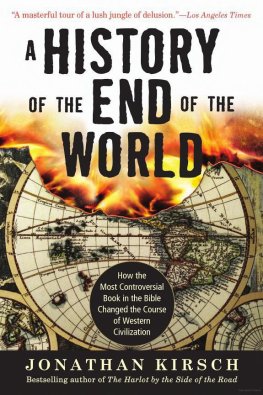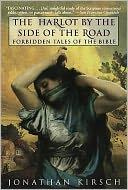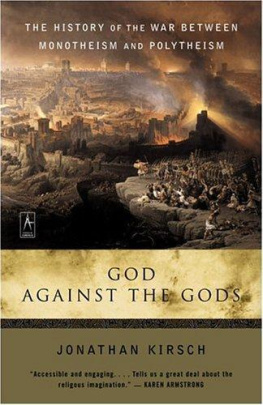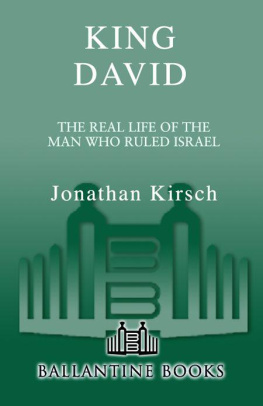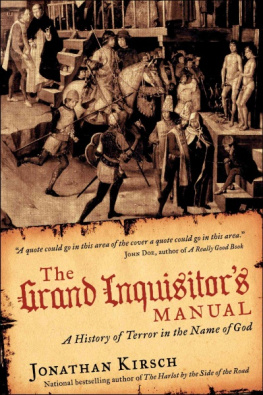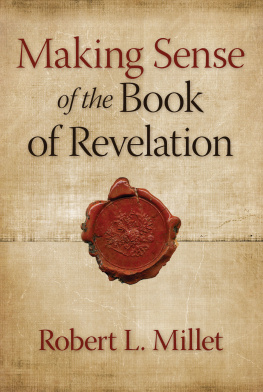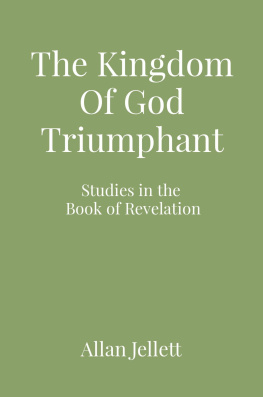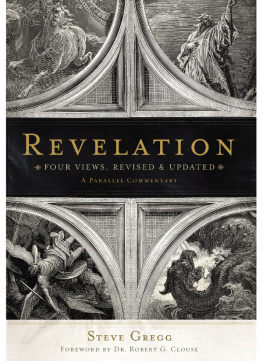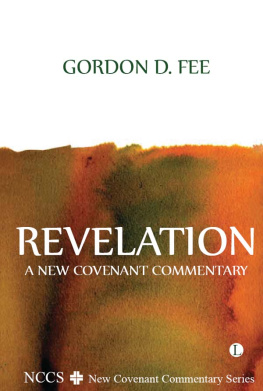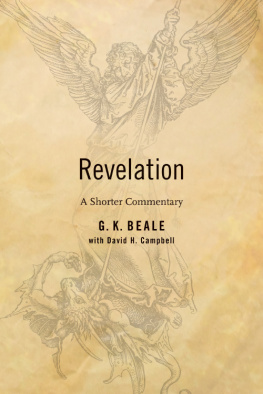How the Most Controversial Book in the Bible Changed the Course of Western Civilization
Itself a cabalistic book, the night was crowded with sacred names and symbolsmystery upon mystery. The stars looked like letters of the alphabet, vowel points, notes of music. The world was a parchment scrawled with words and song. He was surrounded by powers, some good, some evil, some cruel, some merciful, but each with its own nature and its own task to perform.
Revelation has as many mysteries as it does words.
J EROME
I know the ending, goes the slogan on a license-plate frame that can be spotted here and there on the streets and highways of America. God wins.
Its a credo that pious Jews, Christians, and Muslims hold in common, although they might quibble on exactly what is meant by the word God. But the plainspoken slogan conceals a profound and enduring mystery: human beings of all faiths, in all times and all places, have wondered when and how the world will come to an end. Nowadays, of course, the very same questions are being asked (and answered) by scientists rather than theologians. For the Christian true believer, however, the ending refers to a scenario that is described in horrific and heart-shaking detail in the single scariest book in all of scripture, the book of Revelation.
The beginning of the end, according to Revelation, will be augured by mysterious signs and wondersa black sun and a blood-red moon, the stars falling to earth, persecutors and false prophets, plague and pestilence and famine. Then the satanic arch-villain who has come to be called the Antichrist will rise to absolute power on earth. After seven years of oppression and persecution under the Antichrist, Jesus Christ will descend from heaven in the guise of a warrior-king, lead a celestial army of resurrected saints and martyrs to victory over the demonic hordes at the Battle of Armageddon, drape Satan in chains and confine him in a bottomless pit, and reign over an earthly kingdom for one thousand years.
At the end of the millennium, Satan will break out of his bonds, and Jesus Christ will be compelled to fight a second and final battle. At last, the dead will be resurrected, the living and dead alike will be judged, and the earth as we know it will be destroyed once and for all. The end of the world, according to Revelation, will be followed by the creation of a new heaven and a new earth, a celestial paradise where the Christian saints and martyrs will spend eternity in perfect bliss. Everyone else will sizzle forever along with Satan in a lake of fire and brimstone.
Thats the pitch line for the book of Revelation, so to speak, but the text itself is something even richer and stranger. The nightmarish landscape conjured up by its author is stalked by God and the Devil, the Lamb and the Beast, a lascivious whore and a woman in labor, angels and demons in the countless thousands, and a bestiary of monsters so grotesque and so implausible that they would not seem out of place in a comic book or a horror flick. At certain moments, in fact, the book of Revelation resembles nothing so much as an ancient prototype of the psychological thriller and the monster movie, and its imagery seems to fire the same synapses in the human brain.
Nowadays, Revelation finds its most ardent readers in Christian fundamentalist circles, but even someone who has never opened the very last book of the New Testament is likely to find the plot and characters to be hauntingly familiar. The idea that the world will end (and soon)and the phantasmagoria of words, numbers, colors, images, and incidents in which the end-times are described in the book of Revelationare deeply woven into the fabric of Western civilization, both in high culture and in pop culture, starting in distant biblical antiquity and continuing into our own age. The Battle of Armageddon, the Four Horsemen of the Apocalypse, the Seventh Seal, the Great Whore of Babylon, and, more obliquely, the Antichrist, the Grim Reaper, and the Grapes of Wrath have migrated from the pages of Revelation to some of our most exalted works of literature, art, and music as well as the sports pages, the movie screen, and the paperback best seller.
Above all, the book of Revelation has always been used as a kind of codebook to discover the hidden meanings behind the great events and personages of historywar and revolution, kings and conquerors, pandemic and natural disaster. And the words and phrases of Revelation, its stock figures and scenes, have been recycled and repurposed by artists and poets, preachers and propagandistsall in ser vice of some religious or political or cultural agenda. The conquest of Jerusalem by medieval crusaders, the Bonfire of the Vanities in Florence during the Renaissance, the naming of the newly discovered Americas as the New World, and the thousand-year Reich promised by Adolf Hitler are all examples of the unlikely and unsettling ways that the book of Revelation has resonated through history. Even today, end-of-the-world fears and fantasies are peddled by Hollywood moviemakers and best-selling novelists, hard-preaching televangelists and presidential hopefuls.
Still, the book of Revelation is regarded by secular readersand even by progressive Christians of various denominationsas a biblical oddity at best and, at worst, a kind of petri dish for the breeding of dangerous religious eccentricity. Most Jewish readers have never bothered to crack open a copy of the Christian scriptures, and when they do, they are deeply offended to find that Jews are described in Revelation as members of the synagogue of Satan. So the ironic and disdainful treatment of Revelation in Ingmar Bergmans The Seventh Seal, a darkly postmodern motion picture that questions whether God exists at all, is not wholly anachronistic.
Death is behind your back. His scythe flashes above your heads. Which of you will he strike first? cries an overwrought preacher of the High Middle Ages as he wanders through a plague-ridden countryside in the company of flagellants and penitents. You are all doomed, do you hear? Doomed! Doomed! Doomed! And a battle-scarred squire, newly returned from the Crusades and wholly disillusioned with both God and humankind, retorts: Do they really expect modern people to take that drivel seriously?
Whether we approach the book of Revelation as drivel or divine mystery, however, the fact remains that Revelation is still embraced with credulity and deadly seriousness by a great many men and women in the modern world, and not only by the kind of true believers who announce their deepest convictions on their bumpers. Indeed, the readers of Revelation in modern America include a few men who have possessed the godlike power to incinerate the world with the launch codes of the American nuclear arsenal.
Like the popes and kings of the Middle Ages who consulted with apocalyptic seers for advice on statecraft, more than one recent American president was raised in a faith that instructs him to read and heed the book of Revelation as Gods master plan for human history. And so, if the book of Revelation is still embraced by men with the power to destroy the world, we urgently need to know what is written there, how it came to be written in the first place, and how it has been used and abused throughout the history of a world that refuses to end.


